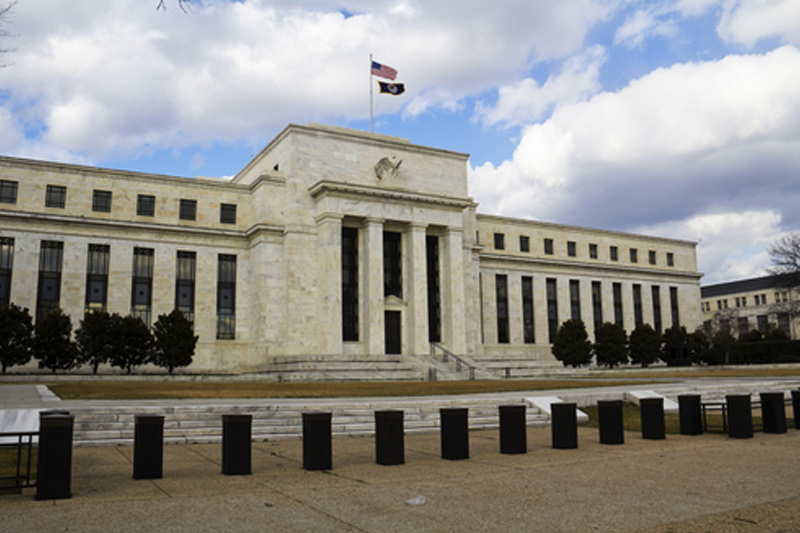Investing.com – Federal Reserve policymakers said their patient approach to monetary policy action could continue for "some time" amid concerns over the sluggish pace of inflation, according to minutes of the Fed’s last meeting released Wednesday.
The Fed kept its benchmark rate at a range of 2.25% to 2.5% at the conclusion of its two-day policy meeting on May 1.
"Members observed that a patient approach to determining future adjustments to the target range for the federal funds rate would likely remain appropriate for some time, especially in an environment of moderate economic growth and muted inflation pressures, even if global economic and financial conditions continued to improve," according to the minutes.
Despite concerns over the muted pace of inflation of 1.6%, according to the most recent reading, the Fed expects core PCE price inflation to move up in the near term, but nevertheless to run just below its 2% target over medium term.
"Total PCE price inflation was forecast to run a bit below core inflation in 2020 and 2021, reflecting projected declines in energy prices," the Fed said in the minutes.
Fed members, however, seemingly touted near-term optimism for the domestic economy, with real GDP forecast to "expand at a rate above the staff's estimate of potential output growth in 2019 and 2020," but then slow to "a pace below potential output growth in 2021."
At its previous meeting, the Federal Reserve said economic activity rose at a "solid rate," but acknowledged that the growth of household spending and business fixed investment slowed in the first quarter.
In the wake of recent turmoil in U.S-China trade, the Fed expressed concerns that trade policies and foreign economic developments could "move in directions that have significant negative effects on U.S. economic growth."
That echoed comments a day earlier from Boston Fed President Eric Rosengren, who said the uncertainty surrounding the U.S.-China trade dispute adds a downside risk to his forecast for the economy.
The Fed also outlined two scenarios concerning its plan to end its balance-sheet reduction program: a "proportional" portfolio and shorter-maturity portfolio, the latter of which would "put significant upward pressure on term premiums and imply that the path of the federal funds rate would need to be correspondingly lower to achieve the same macroeconomic outcomes as in the baseline outlook," according to the minutes.
